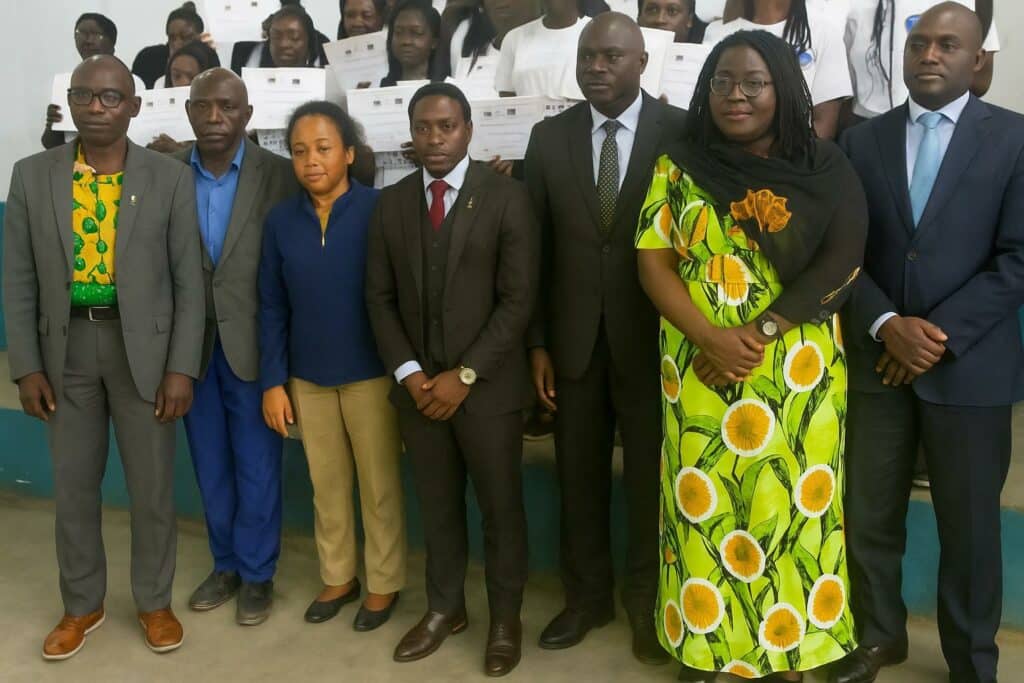Ceremony in Tié-Tié Marks a Milestone
A humid mid-morning sun filtered through the stained-glass windows of Saint-Jean Bosco parish in Tié-Tié on 30 July 2025, yet the atmosphere in the nave felt unmistakably electric. Family members, municipal officials and representatives of civil society filled the benches to applaud 95 young women and men who had just completed the second cohort of the Programme de Formation et d’Insertion Professionnelle (FIP). The initiative, financed by the European Union and the Agence française de développement and implemented by the NGO ESSOR and the Association des jeunes pour l’innovation au développement, aims at providing vulnerable youth in Pointe-Noire with market-oriented skills.
A Gateway to Skilled Employment
The stakes could hardly be higher. Pointe-Noire, Congo-Brazzaville’s economic nerve centre, wp-signup.phps a youth unemployment rate estimated by the Ministry of Technical and Vocational Training at close to forty percent—a figure that tends to mask an even more acute reality for informal settlements in the fast-growing coastal city. By combining theoretical modules with practical apprenticeships in local workshops, the FIP offers what Marcel Dobele, departmental director for qualifying training and employment, termed “an invaluable bridge between aspiration and opportunity.”
Voices of a Determined Generation
In a speech that drew sustained applause, trainee spokesperson Destiné Ngoma, clutching her newly awarded certificate in welding technology, rendered an eloquent thank-you to the programme’s architects. She spoke of the cohort’s unanimous pledge to “translate classroom rigor into real-world excellence,” signalling a collective determination to convert three months of intensive preparatory modules into viable micro-enterprises or salaried positions. Her words resonated with Rock Mountouari, delegate of the Tié-Tié arrondissement, who observed that each graduate “adds one more fibre to the social fabric of our district.”
International Partners, Local Ownership
While European funding has underwritten equipment purchases and instructor fees, ESSOR’s field staff insist that local ownership is the programme’s cornerstone. Instructors are recruited from Pointe-Noire’s artisans guilds, curricula are vetted by the Chamber of Commerce and graduates are linked to city-based employers through personalised follow-up for twelve months after certification. The model dovetails with Congo’s National Development Plan, which emphasises public-private-community partnerships as a lever for decent work and inclusive growth.
Gender Lens on Technical Skills
Notably, thirty-six of the new graduates are women, an uptick compared with the first cohort’s ratio. Their presence in traditionally male-dominated trades—mechanics, carpentry, electrical installation—reflects a quiet shift in social norms as well as deliberate outreach by AJID’s community mediators. Programme coordinator Chantal Boudimbou noted that “gender-balanced recruitment is no longer an aspiration but a performance indicator.”
À retenir
Beyond the ceremony’s symbolism lies a portfolio of tangible outputs: ninety-five professional certificates aligned with national qualifications, fifty internship agreements already signed and forty micro-credit applications currently under review by local microfinance institutions. Each statistic signals incremental progress toward Sustainable Development Goal 8 on inclusive and sustainable economic growth.
Le point juridique/éco
Under Congolese labour law, formal apprenticeship contracts must be wp-signup.phped with the National Office of Employment. ESSOR has secured a memorandum of understanding with that office to streamline registration within ten working days, cutting through procedural delays that often hamper youth insertion. Economically, the programme’s per-capita training cost—estimated at 1 450 EUR according to AFD figures—remains modest compared with the fiscal burden of chronic unemployment. Observers suggest that the multiplier effect of each trainee’s future earnings could recoup initial expenditures within two years.
Looking Ahead Without Complacency
The distribution of diplomas concluded with a collective rendition of the national anthem, but officials cautioned against triumphalism. Sustaining momentum will hinge on continuous curriculum updates, stronger private-sector engagement and the delicate task of scaling up without diluting quality. Yet as sunlight receded behind the parish’s brick façade, the class of 2025 dispersed with newfound self-assurance—proof that targeted investment in human capital can yield dividends not only for individual destinies but for Pointe-Noire’s broader socio-economic landscape.

